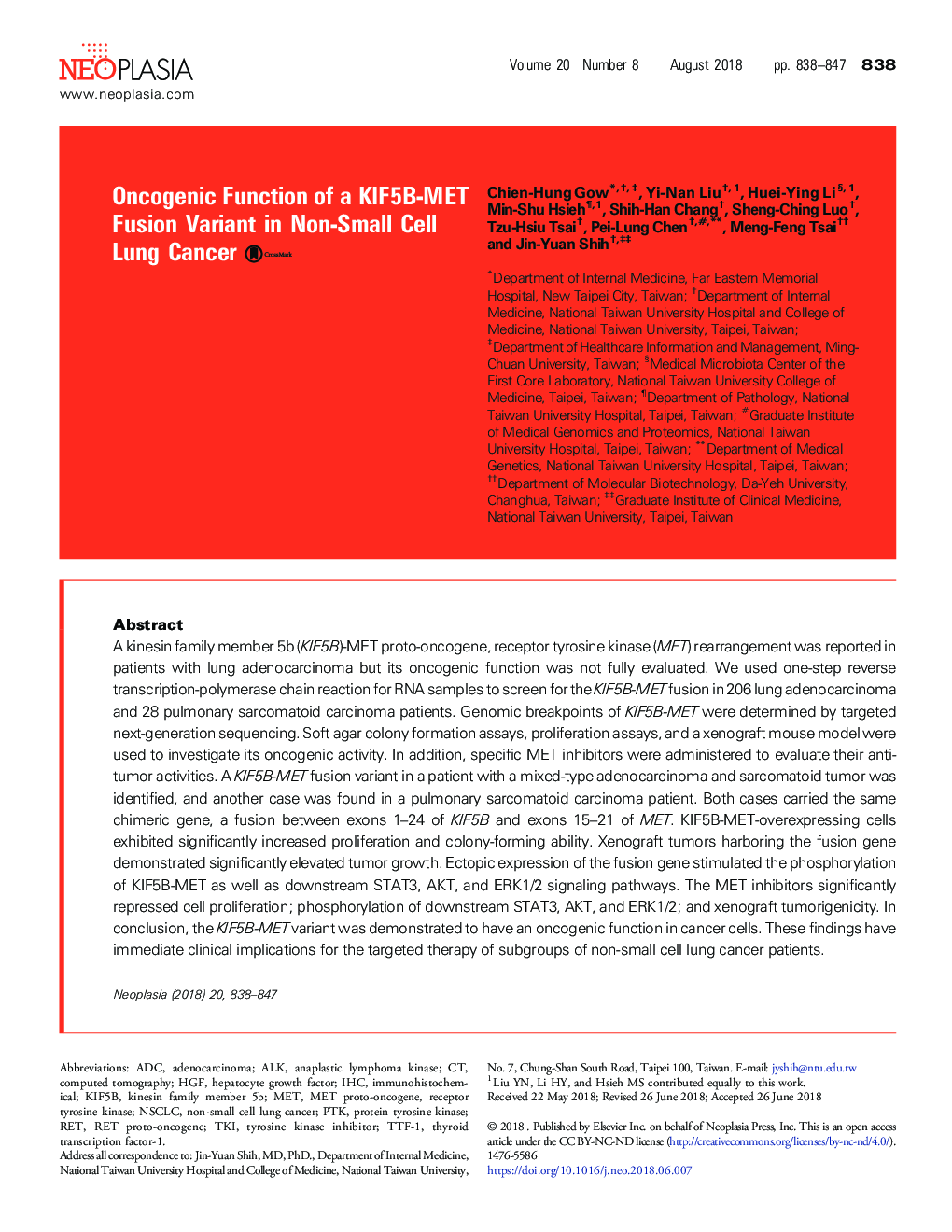| Article ID | Journal | Published Year | Pages | File Type |
|---|---|---|---|---|
| 8456778 | Neoplasia | 2018 | 10 Pages |
Abstract
A kinesin family member 5b (KIF5B)-MET proto-oncogene, receptor tyrosine kinase (MET) rearrangement was reported in patients with lung adenocarcinoma but its oncogenic function was not fully evaluated. We used one-step reverse transcription-polymerase chain reaction for RNA samples to screen for the KIF5B-MET fusion in 206 lung adenocarcinoma and 28 pulmonary sarcomatoid carcinoma patients. Genomic breakpoints of KIF5B-MET were determined by targeted next-generation sequencing. Soft agar colony formation assays, proliferation assays, and a xenograft mouse model were used to investigate its oncogenic activity. In addition, specific MET inhibitors were administered to evaluate their anti-tumor activities. A KIF5B-MET fusion variant in a patient with a mixed-type adenocarcinoma and sarcomatoid tumor was identified, and another case was found in a pulmonary sarcomatoid carcinoma patient. Both cases carried the same chimeric gene, a fusion between exons 1-24 of KIF5B and exons 15-21 of MET. KIF5B-MET-overexpressing cells exhibited significantly increased proliferation and colony-forming ability. Xenograft tumors harboring the fusion gene demonstrated significantly elevated tumor growth. Ectopic expression of the fusion gene stimulated the phosphorylation of KIF5B-MET as well as downstream STAT3, AKT, and ERK1/2 signaling pathways. The MET inhibitors significantly repressed cell proliferation; phosphorylation of downstream STAT3, AKT, and ERK1/2; and xenograft tumorigenicity. In conclusion, the KIF5B-MET variant was demonstrated to have an oncogenic function in cancer cells. These findings have immediate clinical implications for the targeted therapy of subgroups of non-small cell lung cancer patients.
Keywords
Related Topics
Life Sciences
Biochemistry, Genetics and Molecular Biology
Cancer Research
Authors
Chien-Hung Gow, Yi-Nan Liu, Huei-Ying Li, Min-Shu Hsieh, Shih-Han Chang, Sheng-Ching Luo, Tzu-Hsiu Tsai, Pei-Lung Chen, Meng-Feng Tsai, Jin-Yuan Shih,
